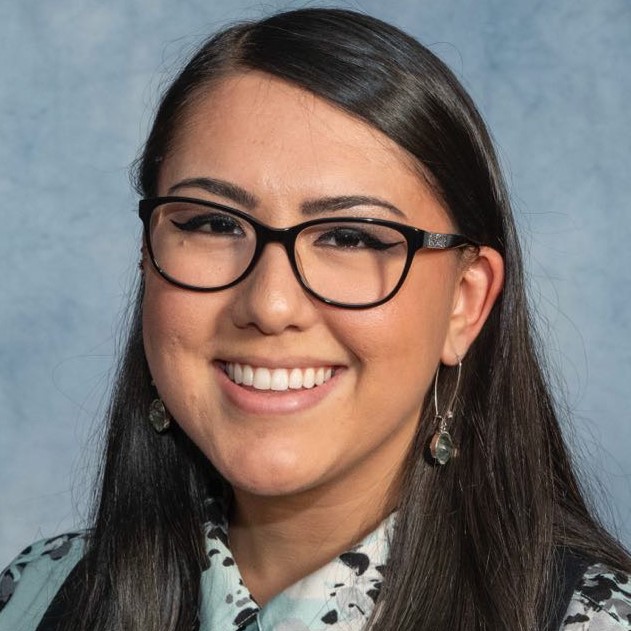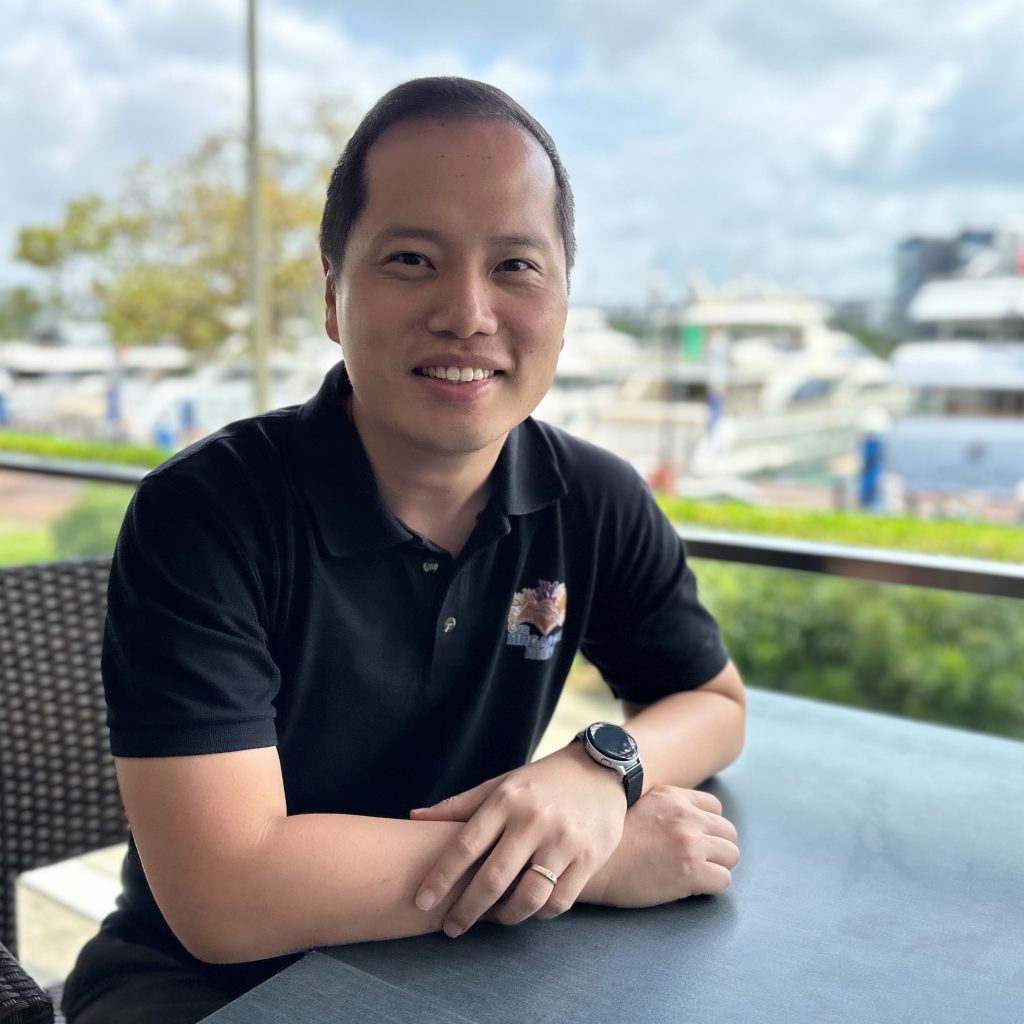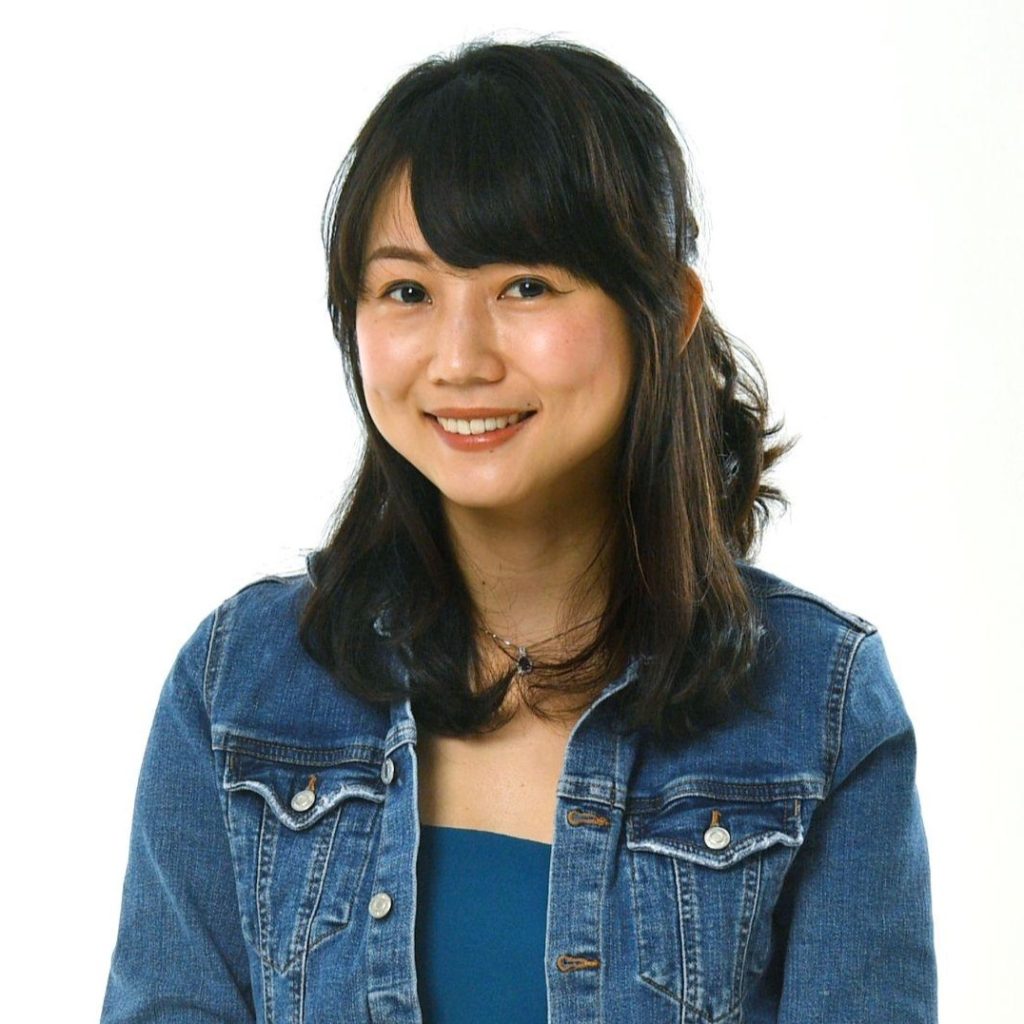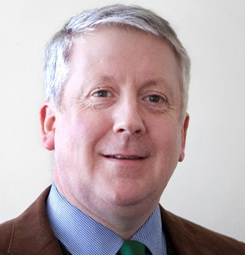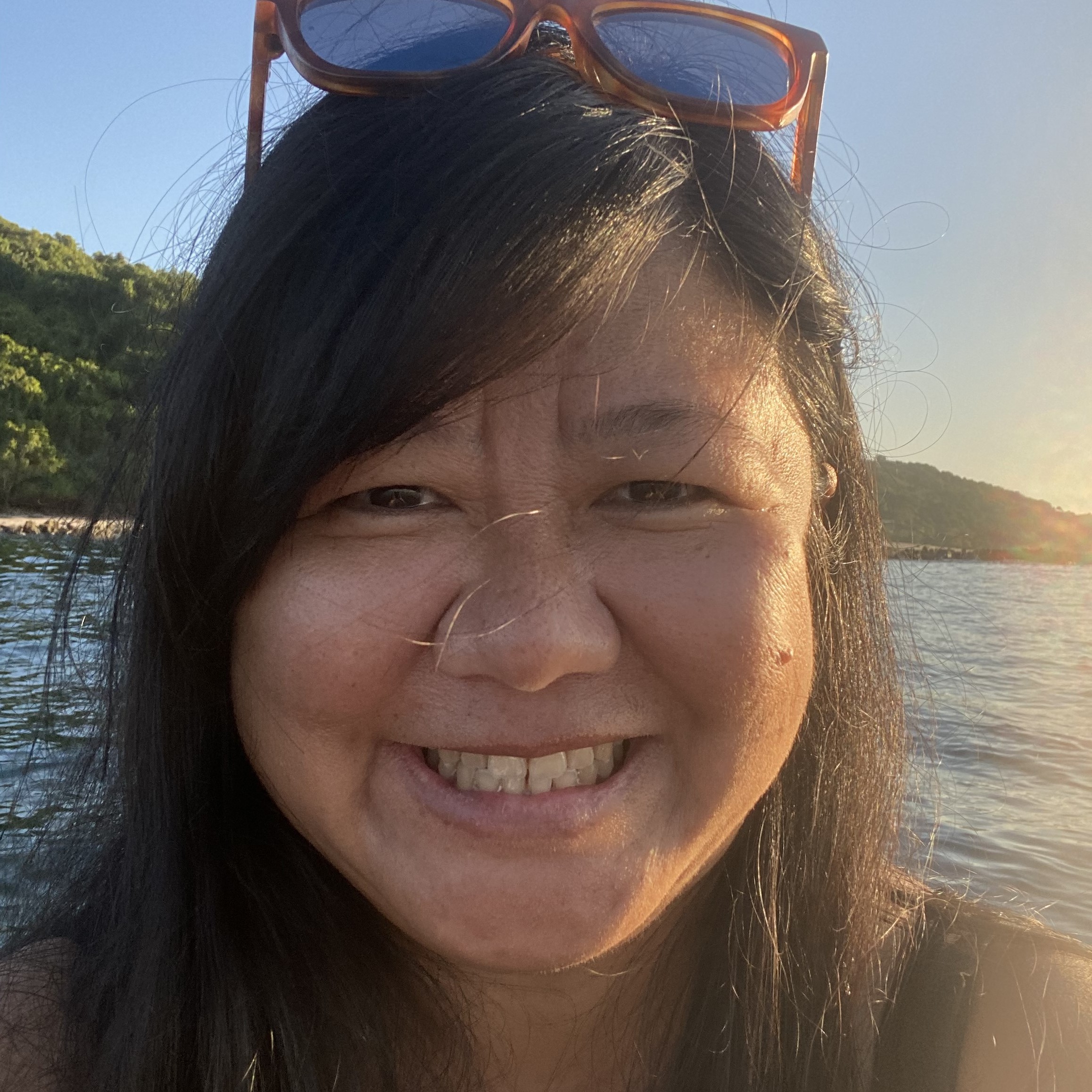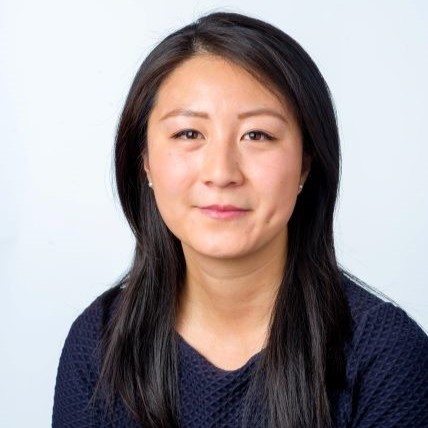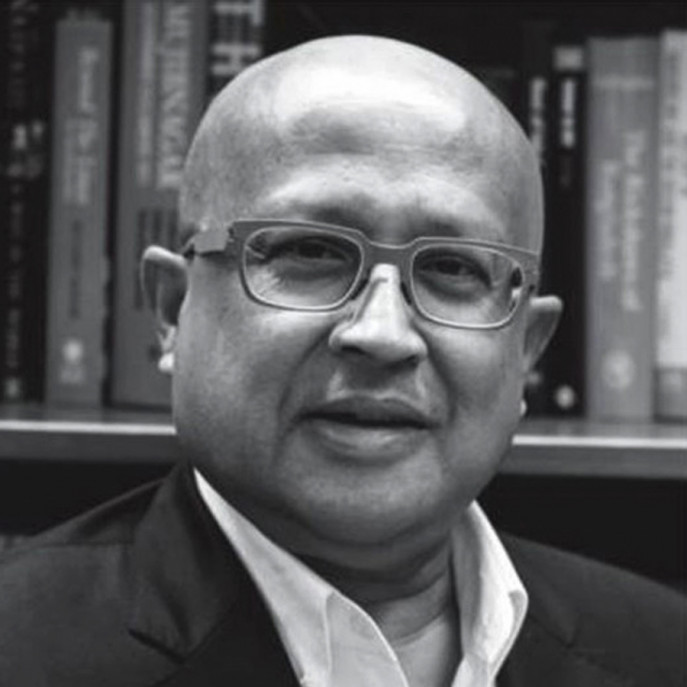Blue Eco Summit by Ocean Geographic
Blue Eco Summit will focus on the entire BLUE SPACE of our ocean as a force of nature and our gift of life.
7 - 8 NOVEMBER

Between Surface and Depth
The conference brings together subject matter experts to discuss on three core issues: High Seas Treaty, Blue Carbon and Deep Sea Mining.
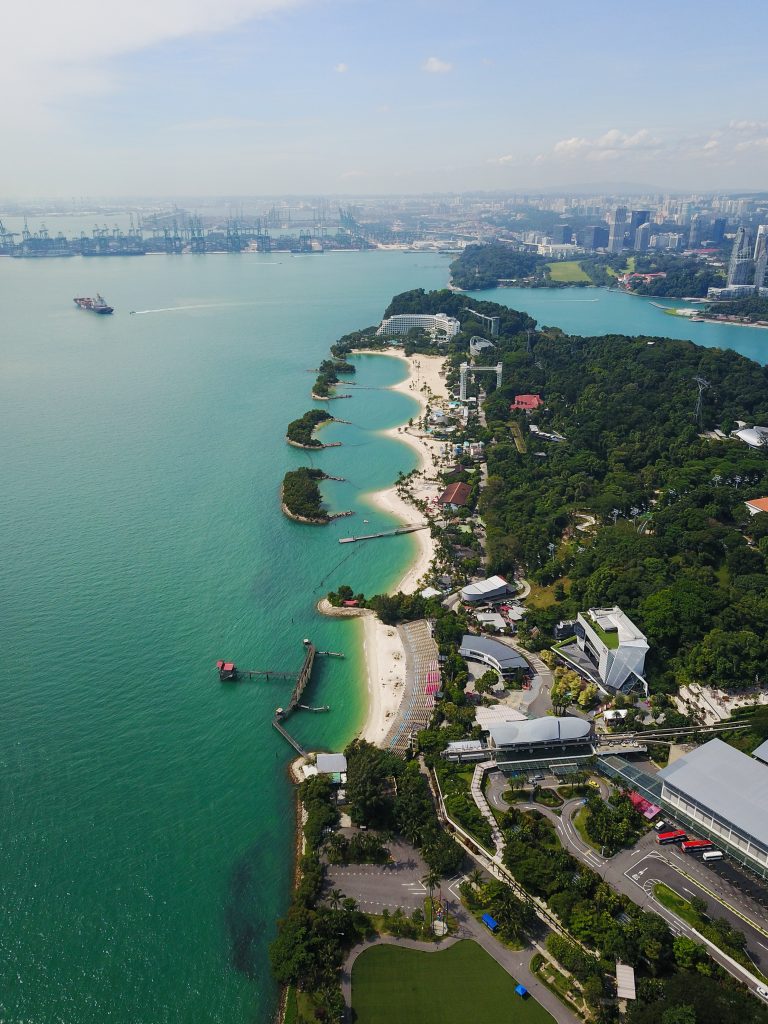

In partnership with Ocean Geographic, Blue Eco Summit, anchored by keynote speaker Dr. Sylvia Earle, affectionately referred to in the industry as “Her Deepness”.
Dr. Sylvia Earle





Dr. Sylvia Earle
The conference agenda covers the key topics below
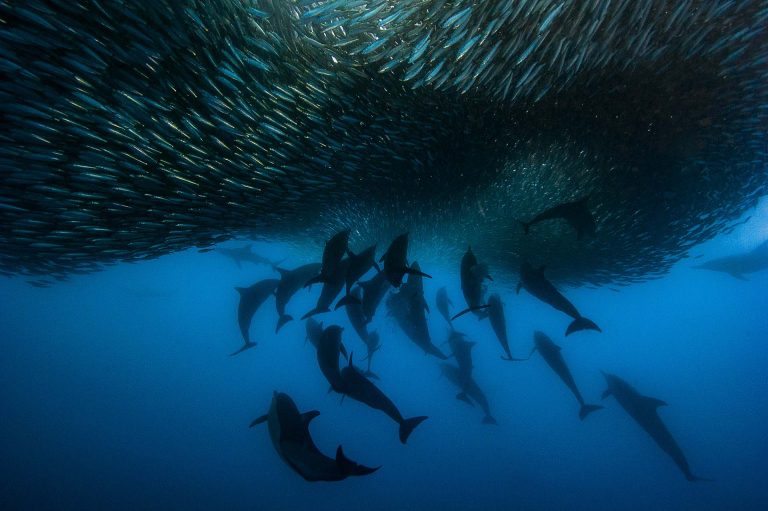
High Seas Treaty
This treaty aims to achieve a coordinated approach to establishing marine protected areas on the high seas (areas that lie beyond national jurisdiction), conserving ocean biodiversity and reaching the global community's “30×30” target to conserve or protect at least 30 percent of the ocean by 2030.

Blue Carbon
Blue carbon is the term for carbon captured by the
world's ocean and coastal ecosystems such as
mangroves, salt marshes and seagrasses.
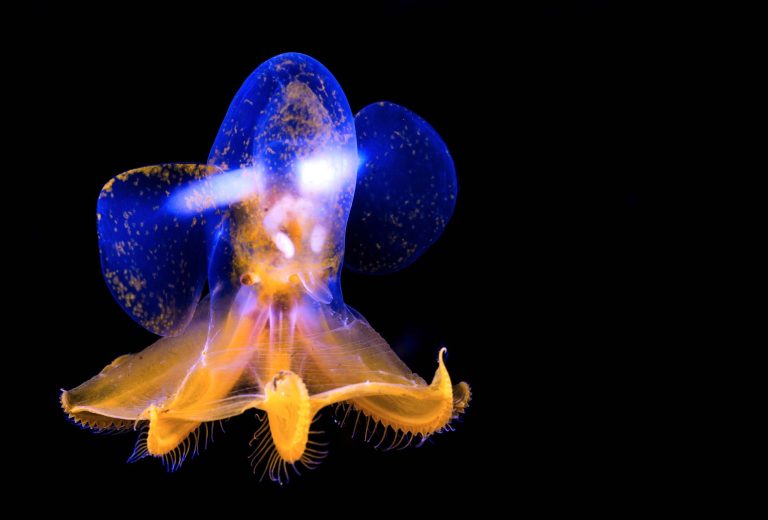
Deep Sea Mining
Deep-sea mining is the process of extracting and often excavating mineral deposits from the deep seabed of depths greater than 200m. This seabed covers about two-thirds of the total seafloor. Research has concerns that deep-sea mining could severely harm marine biodiversity, ecosystems, and disturb carbon story systems.

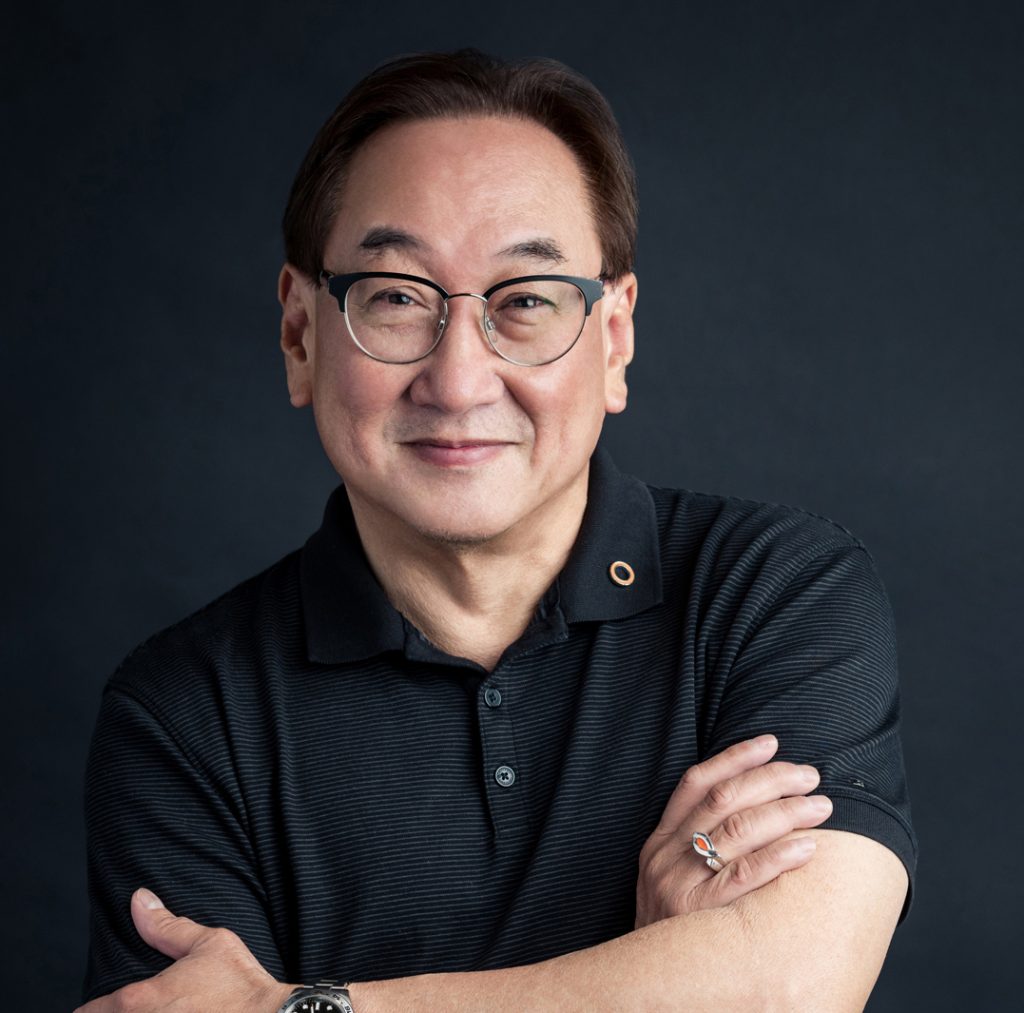
Michael Aw

Richard Bailey

Jessica Novia
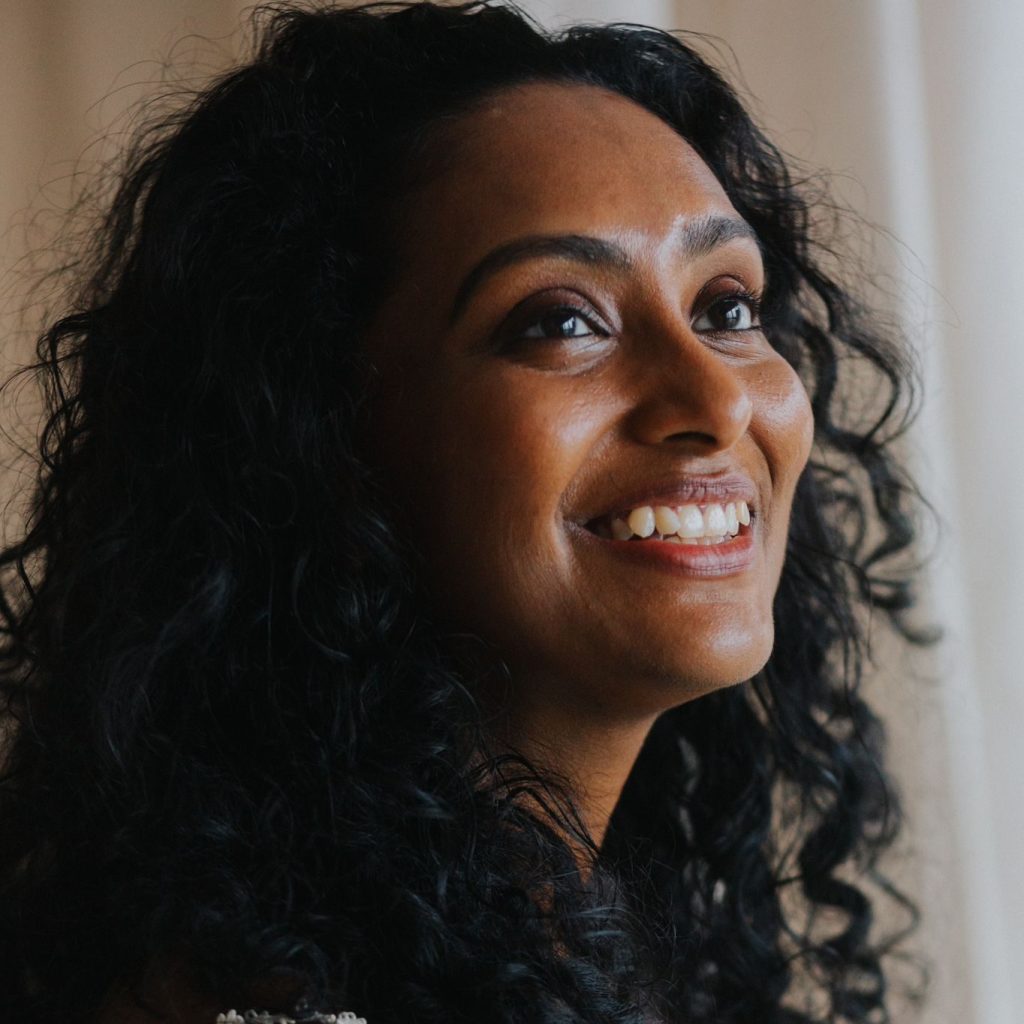
Nithiya Laila
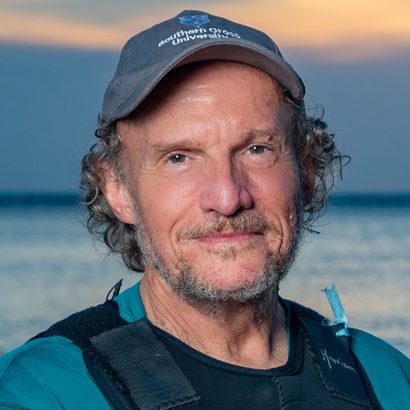
Professor Peter Harrison
Speakers at Blue Eco Summit
Dr. Sylvia Earle PhD
Oceanographer & Explorer, Time Magazine’s First Hero for the Planet
Michael Aw
Founder of Ocean Geographic, Asian Geographic, Deep Hope
Esther An
Chief Sustainability Officer, City Developments Limited (CDL),
TIME100 Climate Leaders in Business 2023
Richard Bailey
Founder of Tetiaroa Society, Blue Climate Initiative
Mickey Rogers, PhD
Co-founder of Sustainable Ocean Alliance Pacific Northwest
Professor Peter Harrison
Distinguished Professor, Founding Director of Marine Ecology Research Centre
Dr Toh Tai Chong
Senior Lecturer, National University of Singapore
Sheree Marris
Marine Biologist, Science Communicator, Author & Public Speaker
Nithiya Laila
TV Presenter, Founder of Brunch Bandits
Quentin Fouesnant
Founder of Qanopy Consulting, Sustainability & ESG Advisor
Jessica Novia
Founder of CarbonEthics
Audrey Tan
Assistant News Editor, The Straits Times
Dr. Gretchen C. Coffman
Senior Lecturer, Associate Director of Environmental Studies
Dr. Winston Chow
Professor of Urban Climate, Singapore Management University
Speakers at Blue Eco Summit
Dr. Sylvia Earle PhD
Oceanographer & Explorer, Time Magazine’s First Hero for the Planet
Michael Aw
Founder of Ocean Geographic, Asian Geographic, Deep Hope
Esther An
Chief Sustainability Officer, City Developments Limited (CDL),
TIME100 Climate Leaders in Business 2023
Richard Bailey
Founder of Tetiaroa Society, Blue Climate Initiative
Mickey Rogers, PhD
Co-founder of Sustainable Ocean Alliance Pacific Northwest
Professor Peter Harrison
Distinguished Professor, Founding Director of Marine Ecology Research Centre
Dr Toh Tai Chong
Senior Lecturer, National University of Singapore
Sheree Marris
Marine Biologist, Science Communicator, Author & Public Speaker
Nithiya Laila
TV Presenter, Founder of Brunch Bandits
Quentin Fouesnant
Founder of Qanopy Consulting, Sustainability & ESG Advisor
Jessica Novia
Founder of CarbonEthics
Conference Speakers
Dr. Sylvia Earle PhD
Founder of Mission Blue, Deep Hope Inc
Michael Aw
Founder of Ocean Geographic, Asian Geographic, Deep Hope
Esther An
Chief Sustainability Officer, City Developments Limited (CDL),
TIME100 Climate Leaders in Business 2023
Richard Bailey
Founder of Tetiaroa Society, Blue Climate Initiative
Mickey Rogers, PhD
Co-founder of Sustainable Ocean Alliance Pacific Northwest
Professor Peter Harrison
Distinguished Professor, Founding Director of Marine Ecology Research Centre
Dr. Toh Tai Chong
Senior Lecturer, National University of Singapore
Sheree Marris
Marine Biologist, Science Communicator, Author & Public Speaker
Nithiya Laila
TV Presenter, Founder of Brunch Bandits
Quentin Fouesnant
Founder of Qanopy Consulting, Sustainability & ESG Advisor
Jessica Novia
Founder of CarbonEthics
Audrey Tan
Assistant News Editor, The Straits Times
Dr. Gretchen C. Coffman
Senior Lecturer, Associate Director of Environmental Studies
Dr. Winston Chow
Professor of Urban Climate, Singapore Management University
BLUE CARBON Pictures and Video Competition
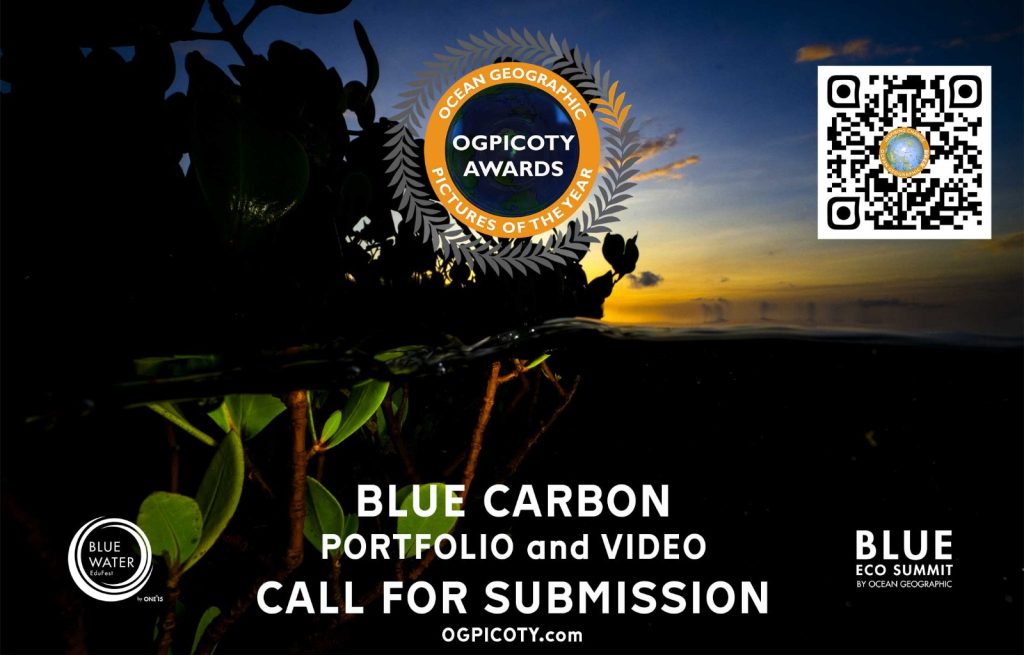
CALL FOR SUBMISSION
Your chance to win an expedition to the High Arctic on MV Sylvia Earle
This is your opportunity to harness your creativity for climate action. The ocean holds 60 times more carbon than the atmosphere and absorbs nearly 31% of carbon dioxide (CO₂) emissions from human activities, which would otherwise trap heat and raise global temperatures. This makes the ocean essential for understanding the global carbon cycle and our future climate.
BLUE CARBON Pictures (portfolio of 3 pictures)
BLUE CARBON Vision (30 to 60 sec video)
These prestigious awards will be presented by Dr Sylvia Earle at Blue Eco Summit. Join us in highlighting the critical role of the ocean in climate regulation.
The Award of Excellence winner of these two categories will be included in the selection of the 2024 OGPICOTY MASTER OF COMPETITION Award to win an expedition to the Arctic on MV Sylvia Earle by Aurora Expeditions.
Submit a portfolio of 3 pictures
The portfolio of images must illustrate blue carbon/carbon captured by ocean ecosystems which includes – Carbon absorbed by aquatic plants, algae, and phytoplankton, Carbon stored in the bodies of living ocean animals, carbon sequestered in deep-sea sediments.
Submit a 30 to 60-second video
The 60” video should be narrated with text to promote/illustrate the importance of blue carbon/carbon captured by ocean ecosystems, including Carbon absorbed by aquatic plants, algae, and phytoplankton, Carbon stored in the bodies of living ocean animals, and carbon sequestered in deep-sea sediments.
Don’t miss this chance to contribute to a sustainable future and win an unforgettable adventure!
Submit your work and contribute to raising awareness and inspiring action for a sustainable future at https://ogpicoty.ogsociety.org/blue-carbon
Attendee Registration & Morning Tea Networking Session
Ballroom Doors Open
Conference Commences
Keynote Lecture 1 - Combining Technology and Sustainability to Protect Our Ocean
Sustainability and technology are intertwined, and not only do they often seek to reduce the environmental impact for the Ocean planet, but they also offer strategic outcomes that can drive conservation. In his keynote address, Fabien Cousteau - renowned Aquanaut, and Founder of the Fabien Cousteau Ocean Learning Center and PROTEUS™ - will explore the intricate link between sustainability and technology. He will delve into the various solutions that are laying the groundwork to minimize risk and maximize opportunities for the ocean.
With a focus on long-term sustainability goals, Fabien will highlight key examples of technologies that are revolutionizing ocean conservation. From artificial intelligence and machine learning to digital twins and the Internet of Things, these innovative solutions are leading the way towards greater mitigation and reduction of pressures on the ocean. Don't miss this rare opportunity to hear from one of the top voices in ocean conservation!
Keynote Lecture 2 – Unlocking Our Ocean’s Potential - Innovative Solutions To Conservation
Technology-based solutions offer unprecedented opportunities to greatly improve our understanding of the ocean and drive impactful conservation efforts. During this session, Jeremy will discuss key technological innovations in ocean conservation, with a focus on OCN.ai's groundbreaking BlueSense™ platform. This keynote address will explore the unique approaches that contribute to essential data, guiding investments in carbon credits and environmental assets. But technology is just one piece of the puzzle.
Collaboration with local communities and governments is essential to creating long-term, decentralized engagements that drive revenue and job creation, while providing transformative impact on ocean conservation efforts. Join this session for insights into the critical importance of cross-sector partnerships and the unexplored potential of the ocean, and the potential of a balanced approach to economic growth and environmental stewardship.
Break
Fireside Chat – A conversation with Fabien and Jeremy
Keynote Lecture 3 – Seabed 2030 Project - Emerging Seabed Mapping
Ocean knowledge is crucial to understanding Planet Earth, yet we still have much to learn about our seafloor, with 75% of it yet to be mapped. The Nippon Foundation-GEBCO Seabed 2030 Project (Seabed 2030) is a collaboration between The Nippon Foundation and the General Bathymetric Chart of the Oceans (GEBCO) that aims to produce the definitive GEBCO bathymetric map of the entire ocean by 2030. This will enable the world to make informed policy decisions, use the ocean sustainably, and undertake scientific research that is based on detailed knowledge of seafloor topography.
As a pioneering initiative to map our final frontiers, Seabed 2030 relies on the goodwill and efforts of a global community of governments, industry, research, and philanthropic sectors, in combination with volunteer citizen scientists and contributors. The map of the seafloor is updated annually and is free to download and use – it is a public service for humanity by humanity. Join us and gain a deeper understanding of the key elements of this international project, as well as an overview of the challenges involved in such a global commitment, and how we can shape the way forward.
Lunch
- Meet The Blue Water Heroes
- Foyer Activity: Fantasium VR Corner
Fireside Chat – Implications Of The High Sea Treaty
The Biodiversity Beyond National Jurisdiction Treaty Agreement (BBNJ), commonly referred to as The High Seas Treaty, marked a significant achievement in the realm of biodiversity conservation and sustainable utilisation beyond national borders when it was made available for signature during the United Nations General Assembly High-Level Week in September 2023. It addresses regulatory gaps in the protection of the marine environment and resources in the high seas and deep seabed, which has hitherto been fragmented across various sectoral and regional bodies.
As of 2 November 2023, 82 countries have signed the BBNJ Agreement which shows a high level of international commitment to the BBNJ process. This is particularly important for Small Island Developing States (SIDS) like Singapore that depend on the oceans and their biodiversity for our livelihoods. It also marks a significant step forward for the implementation of Sustainable Development Goal 14 – in particular, to conserve and sustainably use the oceans, sea and marine resources for sustainable development.
Keynote Lecture 4 – What Happens When The Sea Rises? Effective Coastal City And Settlement Adaption To Manage Climate Change Risks
The Intergovernmental Panel on Climate Change (IPCC) has assessed that current climate impacts are likely to worsen across multiple human-natural systems. Coastal communities in the Southeast Asian region face disproportionately high risks without urgent and coordinated action. This talk examines the levels of risk that regional coastal communities encounter as sea levels rise. It also delves into short-term climate action, such as the Paris Agreement and the Singapore Green Plan, as they gain momentum by 2030. One essential component of enhancing climate resilience in these communities involves planned and executed adaptation strategies that blend technology with nature-based and social policies, ensuring inclusivity of stakeholders, particularly local communities. Discover how gaps in successful adaptation to climate risks can be rapidly closed through meticulous planning and adequate financing of such initiatives.
Keynote Lecture 5 – Development Of Innovative Coastal Protection And Flood Management Solutions
Climate change is resulting in more extreme weather patterns, posing an existential threat to coastal cities like Singapore, which are particularly vulnerable due to their low-lying nature. Since being appointed the national coastal protection agency in 2020, PUB has gone beyond its role in draining planning and stormwater management and embarked on master-planning and site-specific studies, strengthened competencies in coastal hydrodynamic modelling, and launched research initiatives to develop effective strategies to safeguard Singapore’s resilience against the impacts of climate change.
Singapore faces additional challenges due to its limited land, high urbanisation, and dense population, while the rate and extent of sea level rise remain uncertain. However, we believe these uncertainties present opportunities to recreate our coastal areas, and with this aim in mind, the Coastal Protection and Flood Resilience Institute (CFI) Singapore was launched to spearhead research and development. In this session, you will learn about the development of innovative, flexible, and multi-functional solutions for coastal protection and flood management.
Short Break
Keynote Lecture 6 – Innovators Series – Innovative Youngsters (Video Presentation)
This presentation offers a comprehensive perspective on the engagement of youth in the battle against single-use plastics, drawing from a wealth of expertise and insights gleaned from the BBPB journey. It places a special emphasis on weaving the theme and message of “Innovative Youth” into the fabric of this important initiative. It delves into real-life experiences and the hurdles faced during the journey, drawing from the combined experiences of BBPB and YT. This presentation will also shine a light on the obstacles and challenges that often arise when working with young individuals, providing valuable insights into how to overcome these hurdles. Additionally, it addresses the crucial matter of volunteer management, offering a problem statement that delves into the intricacies of coordinating and guiding a diverse group of passionate volunteers towards a common goal.
Keynote Lecture 7 – Innovators Series – Innovative Journeys
What does it mean to live out a childhood dream? What does it take to turn that dream into a reality and keep it alive? The MareCet Research Organization, a grassroots NGO founded in Malaysia in 2012, has its roots in the childhood aspirations of its co-founders, Dr. Louisa Ponnampalam and Fairul Izmal Jamal Hisne. Despite facing doubts and discouragement from various quarters about MareCet’s ability to fulfill its mission, this is the tale of how two young co-founders, initially trained as scientists, ventured into the unknown armed with just a few dollars in their pockets. Their motivation? A lifelong passion for marine mammals and a burning desire to advance the science and conservation of these captivating creatures within their home country.
A decade later, MareCet stands as a thriving and fully-fledged conservation NGO, leading the charge in marine mammal science and conservation in Malaysia. It boasts an extensive network of supporters and collaborators, both nationally and internationally. In this presentation, Dr. Ponnampalam will delve into the trials and challenges that accompanied MareCet’s growth into the marine conservation powerhouse it has become today.
Keynote Lecture 8 – Innovators Series – Innovative Collaborations
The unexplored Myeik Archipelago, located on Myanmar’s southern coast, sprawls across 800 islands, housing a wide range of marine ecosystems and hosting many charismatic and endangered marine species. These include oceanic manta rays, dugongs, various shark species, and marine turtles.
However, with a lack of active marine protected area management and limited surveillance beneath the waves, the Myanmar Ocean Project’s expeditions have been launched to systematically collect data regarding the prevalence of Abandoned, Lost, or Discarded Fishing Gear (ALDFG). Our survey expeditions have united fishermen, island communities, and volunteer divers to find region-appropriate solutions, pinpoint ALDFG hotspots, identify the primary causes of gear loss, and train scuba divers in safe techniques for surveying and retrieving ghost gear.
Throughout our expeditions in the Myeik Archipelago, our team has deeply engaged with fishermen and island community members to comprehend their challenges with ALDFG and potential trouble spots. Additionally, we’ve gathered data by examining reports of ALDFG sightings from scuba dive liveaboard operators.
Our findings have been both eye-opening and concerning. Ghost gear is widespread in the Myeik Archipelago, demanding urgent action to reduce the flow of ALDFG into our oceans. There is compelling evidence of ALDFG causing damage to coral reefs and entirely smothering seafloors.
We persist in collaborating with fishermen, recognizing their pivotal role in helping us determine the best ways to assist them in collecting end-of-life fishing gear, and in reducing and preventing ALDFG from polluting our oceans.
Tea break and Networking Session @ Ballroom Foyer
Blue Water EduFest Welcome Cocktail
Foyer Activity: Fantasium VR Corner
Morning Coffee and Tea
Keynote Lecture 9 – Unlocking A Sustainable Future With Ocean Innovation And Finance
Ocean health is declining. It is not a silo-ed issue but one intrinsically connected to climate change and the loss of biodiversity, impacting both land-based and marine industries. Now more than ever, we must protect and restore our oceans and learn to use them in more sustainable ways. However, ocean health remains overlooked and underfunded in business and finance; UN SDG 14: Life below water, the global goal for ocean conservation, receives the least funding. We need to mobilise more finance, especially private capital, to support the conservation and sustainable use of our oceans and their resources.
A sustainable ocean economy can bring economic, environmental, and social benefits, providing opportunities for corporations and investors. Restoring ocean health and transforming unsustainable practices are driving innovation across industries, from ocean-based climate solutions and sustainable seafood to ocean intelligence and innovative financial tools. Join us to explore the business and investment case for ocean action, with a focus on innovative ocean solutions that can help to unlock a sustainable and prosperous future.
Panel Discussion – Blue Carbon: Challenges and Opportunities
Blue Carbon is gaining traction in carbon credit development, shifting from the traditional focus on generating "green" credits from land-based ecosystems like forests. The "Challenges of Implementing Blue Carbon Market" panel explores barriers in expanding blue carbon projects amid rising global interest and costly accreditation processes and soil carbon oversight that hinder progress.
DHI's advanced ecosystem carbon model offers potential solutions. Their advanced carbon sequestration model, powered by MIKE Powered by DHI software, offers precise site-specific insights into carbon storage capabilities. These innovative models have the potential to transform the accreditation of blue carbon, potentially altering our approach to climate change mitigation.
A central theme of the discussion will be the often-overlooked role of coral reefs in carbon balance. Coral reefs' role in carbon balances and their interconnectedness with ecosystems like seagrass meadows will be discussed, emphasizing conservation's importance.
The challenges are substantial, with declining coral reefs and urgent greenhouse gas reduction needs. Active interventions and ecosystem preservation are essential, recognizing marine ecosystems as more than carbon storage but also contributors to biodiversity, coastal protection, and socio-economic activities. The panel seeks to illuminate these challenges and guide climate change mitigation efforts.
Short Break
Keynote Lecture 10 – Tackling Plastic Pollution – Implications Of The Plastic Treaty
In March 2022, UN Member States endorsed a historic resolution to end plastic pollution and forge an international legally binding agreement by 2024. We must recognize the significance of this resolution and examine the Global Plastic Treaty to understand how it can help us achieve ambitious targets for combatting plastic pollution and marine litter. During this session, we will explore innovative approaches like plastic credits as a market-based mechanism to reduce plastic waste through incentivizing and rewarding sustainable practices.
These approaches are critical in promoting responsible plastic consumption, fostering circular economies, and encouraging investment in sustainable solutions. Learn about how the combined efforts of the Global Plastic Treaty and plastic credits can foster a culture of sustainability, driving positive change and curbing plastics pollution in the ocean.
Keynote Lecture 11 – Tackling Plastic Pollution: Microplastic Mitigation: The Searial Cleaners’ Eco-Friendly Solutions In Asia
Plastic pollution has emerged as a pressing global concern, with Asia at the epicenter of this environmental crisis. Amidst this challenge, a new wave of CleanTech companies is rising, offering innovative and eco-friendly solutions to combat the plastic menace. One such trailblazer is The SearialCleaners: it specifically addresses the insidious small and micro debris littering beaches and shorelines. Unlike traditional cleanup methods which are often reliant on diesel engine-driven tractors and boats, the SearialCleaners’ products and services are eco-sensitive – 100% electric and tailored to collecting microplastics while safeguarding local fauna and flora.
Beyond mere cleanup, these solutions facilitate data collection and analysis, fostering education and prevention efforts. Collaborating closely with governments, NGOs, and corporations, they are on a mission to implement innovative and sustainable solutions that combat plastic pollution effectively. Be inspired by their dedication to preserving the environment and enlisting broad support – marking a promising step toward a cleaner, plastic-free future in Asia and beyond.
Keynote Lecture 12 – Tackling Plastic Pollution – Recycling And Circular Economy Solutions
Plastic pollution is now so rampant that it has been labelled as a crisis. Many are uneducated and misinformed in terms of what plastic is, where it comes from, how it is made, and whether it truly can be reused or recycled. In many developed countries, consumerist wasteful behaviour also causes the plastic problem to persist, despite ample resources to reduce wastage.
While there are breakthroughs in the development of compostable and biodegradable materials in the market materials, these alternatives are either too costly to mass produce or cannot achieve the same properties as some plastics. Not all plastics are created equal and in this session, participants will learn about the actual problems behind recycling plastics, circular economies, and why recycling alone cannot be the only solution – switching off the tap is presently the best way to stop the plastic crisis.
Lunch
Meet The Blue Water Heroes
Keynote Lecture 13 – Harmonising Nature And Purpose – Purpose Driven Yachting And Ocean Conservation
We explore the concept of ‘Responsible Yachting’ and its crucial role in promoting ocean conservation while highlighting substantial contributions to scientific research, all in the pursuit of raising awareness about marine conservation.
A central theme revolves around ICON Yachts’ expedition vessels, emphasising their capability to actively support scientific research and bridge the gap between luxury yachting and marine conservation. Moreover, we will examine a case study exemplifying how ICON Yachts’ expedition vessels have played a pivotal role in advancing scientific research and ocean conservation initiatives.
The presentation also looks at industry trends, showing how the yachting sector is moving towards explorer yachts and the increasing significance of experiential yachting. We will delve into ICON Yachts’ network and partnerships to provide a detailed look at how collaboration impacts the yachting industry. ICON Yachts will demonstrate how they have used their partnerships to create explorer yachts that have made a real difference, with real-world examples and success stories.
Keynote Lecture 14 – Harmonising Nature And Purpose – Institutional Conservation For The Sundarbans
The Sundarbans in Bangladesh stands as the world’s largest mangrove system and a UNESCO World Heritage Site, serving not only as a critical regulator of weather patterns and a shield against cyclones but also as a lifeline for countless people.
The Bengal tiger, an emblematic symbol of Bangladesh, occupies a pivotal role in the Sundarbans ecosystem. Safeguarding this majestic creature and its habitat is of utmost importance, given the looming threats of poaching, overexploitation, and human-wildlife conflict.
As a response to these pressing challenges, WildTeam has launched an array of community engagement programs, including the Village Tiger Response Team (VTRT), Forest Tiger Response Team (FTRT), BaghBandhus (friends of tigers), and TigerScouts. These initiatives are designed to mitigate human-wildlife conflicts, nurture wildlife-friendly attitudes, and empower local communities to actively participate in the conservation efforts for the Sundarbans. Preserving this invaluable natural asset its own right and as guardian of the Sundarbans not only upholds a cultural symbol but also ensures human safety and sustains livelihoods throughout Bangladesh.
Wild team in collaboration with the Bangladesh Forest Department and with support from KfW-German Cooperation, is taking a pivotal step by establishing the Sundarbans Museum and Interpretation Centre. This institution will be the first of its kind, dedicated to increasing knowledge and promoting pro-environmental attitudes regarding the Sundarbans among local communities, Bangladeshis at large, and the global community.
Keynote Lecture 15 – Harmonising Nature And Purpose – Imagining Our Future Ocean
We cannot make a better world if we cannot imagine it. Kids have the most imagination, yet we don’t include them in making decisions, and we don’t take them seriously. Same goes for most indigenous population, even if we know they are the largest contributors to environmental conservation. What if we could work with the youth and indigenous people to imagine and build a sustainable and prosperous relationship with the ocean?
In this talk, Prof Cesar Jung-Harada from the Singapore Institute of Technology will talk about his Open Art & Science work with young students, indigenous people, sensing ocean plastic, mapping coral reefs with robotics and AI, and his recent work in floating solar hydrogen production in Indonesia. If we want a healthy ocean, we need to include everyone, especially those who will have to bear the consequences the longest time – the youth – and those who will be hit the hardest – the indigenous.
Brainstorm Session – Creating Measurable Impact For Your Sustainability Efforts
- Republic Polytechnic Project Presentation
- Group Brainstorm And Presentation
Tea Break available throughout brainstorming session
Blue Water Heroes Awards Dinner
Attendee Registration & Morning Tea Networking Session
Ballroom Doors Open
Conference Commences
Keynote Lecture 1 – Combining Technology and Sustainability to Protect Our Ocean
Sustainability and technology are intertwined, and not only do they often seek to reduce the environmental impact for the Ocean planet, but they also offer strategic outcomes that can drive conservation. In his keynote address, Fabien Cousteau – renowned Aquanaut, and Founder of the Fabien Cousteau Ocean Learning Center and PROTEUS™ – will explore the intricate link between sustainability and technology. He will delve into the various solutions that are laying the groundwork to minimize risk and maximize opportunities for the ocean.
With a focus on long-term sustainability goals, Fabien will highlight key examples of technologies that are revolutionizing ocean conservation. From artificial intelligence and machine learning to digital twins and the Internet of Things, these innovative solutions are leading the way towards greater mitigation and reduction of pressures on the ocean. Don’t miss this rare opportunity to hear from one of the top voices in ocean conservation!
Keynote Lecture 2 – Unlocking Our Ocean’s Potential – Innovative Solutions To Conservation
Technology-based solutions offer unprecedented opportunities to greatly improve our understanding of the ocean and drive impactful conservation efforts. During this session, Jeremy will discuss key technological innovations in ocean conservation, with a focus on OCN.ai’s groundbreaking BlueSense™ platform. This keynote address will explore the unique approaches that contribute to essential data, guiding investments in carbon credits and environmental assets. But technology is just one piece of the puzzle.
Collaboration with local communities and governments is essential to creating long-term, decentralized engagements that drive revenue and job creation, while providing transformative impact on ocean conservation efforts. Join this session for insights into the critical importance of cross-sector partnerships and the unexplored potential of the ocean, and the potential of a balanced approach to economic growth and environmental stewardship.
Break
Keynote Lecture 3 – Seabed 2030 Project – Emerging Seabed Mapping
Ocean knowledge is crucial to understanding Planet Earth, yet we still have much to learn about our seafloor, with 75% of it yet to be mapped. The Nippon Foundation-GEBCO Seabed 2030 Project (Seabed 2030) is a collaboration between The Nippon Foundation and the General Bathymetric Chart of the Oceans (GEBCO) that aims to produce the definitive GEBCO bathymetric map of the entire ocean by 2030. This will enable the world to make informed policy decisions, use the ocean sustainably, and undertake scientific research that is based on detailed knowledge of seafloor topography.
As a pioneering initiative to map our final frontiers, Seabed 2030 relies on the goodwill and efforts of a global community of governments, industry, research, and philanthropic sectors, in combination with volunteer citizen scientists and contributors. The map of the seafloor is updated annually and is free to download and use – it is a public service for humanity by humanity. Join us and gain a deeper understanding of the key elements of this international project, as well as an overview of the challenges involved in such a global commitment, and how we can shape the way forward.
Lunch
- Meet The Blue Water Heroes
- Foyer Activity: Fantasium VR Corner
Fireside Chat – Implications Of The High Sea Treaty
The Biodiversity Beyond National Jurisdiction Treaty Agreement (BBNJ), commonly referred to as The High Seas Treaty, marked a significant achievement in the realm of biodiversity conservation and sustainable utilisation beyond national borders when it was made available for signature during the United Nations General Assembly High-Level Week in September 2023. It addresses regulatory gaps in the protection of the marine environment and resources in the high seas and deep seabed, which has hitherto been fragmented across various sectoral and regional bodies.
As of 2 November 2023, 82 countries have signed the BBNJ Agreement which shows a high level of international commitment to the BBNJ process. This is particularly important for Small Island Developing States (SIDS) like Singapore that depend on the oceans and their biodiversity for our livelihoods. It also marks a significant step forward for the implementation of Sustainable Development Goal 14 – in particular, to conserve and sustainably use the oceans, sea and marine resources for sustainable development.
Keynote Lecture 4 – What Happens When The Sea Rises? Effective Coastal City And Settlement Adaption To Manage Climate Change Risks
The Intergovernmental Panel on Climate Change (IPCC) has assessed that current climate impacts are likely to worsen across multiple human-natural systems. Coastal communities in the Southeast Asian region face disproportionately high risks without urgent and coordinated action. This talk examines the levels of risk that regional coastal communities encounter as sea levels rise. It also delves into short-term climate action, such as the Paris Agreement and the Singapore Green Plan, as they gain momentum by 2030. One essential component of enhancing climate resilience in these communities involves planned and executed adaptation strategies that blend technology with nature-based and social policies, ensuring inclusivity of stakeholders, particularly local communities. Discover how gaps in successful adaptation to climate risks can be rapidly closed through meticulous planning and adequate financing of such initiatives.
Keynote Lecture 5 – Development Of Innovative Coastal Protection And Flood Management Solutions
Climate change is resulting in more extreme weather patterns, posing an existential threat to coastal cities like Singapore, which are particularly vulnerable due to their low-lying nature. Since being appointed the national coastal protection agency in 2020, PUB has gone beyond its role in draining planning and stormwater management and embarked on master-planning and site-specific studies, strengthened competencies in coastal hydrodynamic modelling, and launched research initiatives to develop effective strategies to safeguard Singapore’s resilience against the impacts of climate change.
Singapore faces additional challenges due to its limited land, high urbanisation, and dense population, while the rate and extent of sea level rise remain uncertain. However, we believe these uncertainties present opportunities to recreate our coastal areas, and with this aim in mind, the Coastal Protection and Flood Resilience Institute (CFI) Singapore was launched to spearhead research and development. In this session, you will learn about the development of innovative, flexible, and multi-functional solutions for coastal protection and flood management.
Short Break
Keynote Lecture 6 – Innovators Series – Innovative Youngsters (Video Presentation)
This presentation offers a comprehensive perspective on the engagement of youth in the battle against single-use plastics, drawing from a wealth of expertise and insights gleaned from the BBPB journey. It places a special emphasis on weaving the theme and message of “Innovative Youth” into the fabric of this important initiative. It delves into real-life experiences and the hurdles faced during the journey, drawing from the combined experiences of BBPB and YT. This presentation will also shine a light on the obstacles and challenges that often arise when working with young individuals, providing valuable insights into how to overcome these hurdles. Additionally, it addresses the crucial matter of volunteer management, offering a problem statement that delves into the intricacies of coordinating and guiding a diverse group of passionate volunteers towards a common goal.
Keynote Lecture 7 – Innovators Series – Innovative Journeys
What does it mean to live out a childhood dream? What does it take to turn that dream into a reality and keep it alive? The MareCet Research Organization, a grassroots NGO founded in Malaysia in 2012, has its roots in the childhood aspirations of its co-founders, Dr. Louisa Ponnampalam and Fairul Izmal Jamal Hisne. Despite facing doubts and discouragement from various quarters about MareCet’s ability to fulfill its mission, this is the tale of how two young co-founders, initially trained as scientists, ventured into the unknown armed with just a few dollars in their pockets. Their motivation? A lifelong passion for marine mammals and a burning desire to advance the science and conservation of these captivating creatures within their home country.
A decade later, MareCet stands as a thriving and fully-fledged conservation NGO, leading the charge in marine mammal science and conservation in Malaysia. It boasts an extensive network of supporters and collaborators, both nationally and internationally. In this presentation, Dr. Ponnampalam will delve into the trials and challenges that accompanied MareCet’s growth into the marine conservation powerhouse it has become today.
Keynote Lecture 8 – Innovators Series – Innovative Collaborations
The unexplored Myeik Archipelago, located on Myanmar’s southern coast, sprawls across 800 islands, housing a wide range of marine ecosystems and hosting many charismatic and endangered marine species. These include oceanic manta rays, dugongs, various shark species, and marine turtles.
However, with a lack of active marine protected area management and limited surveillance beneath the waves, the Myanmar Ocean Project’s expeditions have been launched to systematically collect data regarding the prevalence of Abandoned, Lost, or Discarded Fishing Gear (ALDFG). Our survey expeditions have united fishermen, island communities, and volunteer divers to find region-appropriate solutions, pinpoint ALDFG hotspots, identify the primary causes of gear loss, and train scuba divers in safe techniques for surveying and retrieving ghost gear.
Throughout our expeditions in the Myeik Archipelago, our team has deeply engaged with fishermen and island community members to comprehend their challenges with ALDFG and potential trouble spots. Additionally, we’ve gathered data by examining reports of ALDFG sightings from scuba dive liveaboard operators.
Our findings have been both eye-opening and concerning. Ghost gear is widespread in the Myeik Archipelago, demanding urgent action to reduce the flow of ALDFG into our oceans. There is compelling evidence of ALDFG causing damage to coral reefs and entirely smothering seafloors.
We persist in collaborating with fishermen, recognizing their pivotal role in helping us determine the best ways to assist them in collecting end-of-life fishing gear, and in reducing and preventing ALDFG from polluting our oceans.
Tea break and Networking Session @ Ballroom Foyer
Blue Water EduFest Welcome Cocktail
Foyer Activity: Fantasium VR Corner
Morning Coffee and Tea
Keynote Lecture 9 – Unlocking A Sustainable Future With Ocean Innovation And Finance
Ocean health is declining. It is not a silo-ed issue but one intrinsically connected to climate change and the loss of biodiversity, impacting both land-based and marine industries. Now more than ever, we must protect and restore our oceans and learn to use them in more sustainable ways. However, ocean health remains overlooked and underfunded in business and finance; UN SDG 14: Life below water, the global goal for ocean conservation, receives the least funding. We need to mobilise more finance, especially private capital, to support the conservation and sustainable use of our oceans and their resources.
A sustainable ocean economy can bring economic, environmental, and social benefits, providing opportunities for corporations and investors. Restoring ocean health and transforming unsustainable practices are driving innovation across industries, from ocean-based climate solutions and sustainable seafood to ocean intelligence and innovative financial tools. Join us to explore the business and investment case for ocean action, with a focus on innovative ocean solutions that can help to unlock a sustainable and prosperous future.
Panel Discussion – Blue Carbon: Challenges and Opportunities
Blue Carbon is gaining traction in carbon credit development, shifting from the traditional focus on generating “green” credits from land-based ecosystems like forests. The “Challenges of Implementing Blue Carbon Market” panel explores barriers in expanding blue carbon projects amid rising global interest and costly accreditation processes and soil carbon oversight that hinder progress.
DHI’s advanced ecosystem carbon model offers potential solutions. Their advanced carbon sequestration model, powered by MIKE Powered by DHI software, offers precise site-specific insights into carbon storage capabilities. These innovative models have the potential to transform the accreditation of blue carbon, potentially altering our approach to climate change mitigation.
A central theme of the discussion will be the often-overlooked role of coral reefs in carbon balance. Coral reefs’ role in carbon balances and their interconnectedness with ecosystems like seagrass meadows will be discussed, emphasizing conservation’s importance.
The challenges are substantial, with declining coral reefs and urgent greenhouse gas reduction needs. Active interventions and ecosystem preservation are essential, recognizing marine ecosystems as more than carbon storage but also contributors to biodiversity, coastal protection, and socio-economic activities. The panel seeks to illuminate these challenges and guide climate change mitigation efforts.
Short Break
Keynote Lecture 10 – Tackling Plastic Pollution – Implications Of The Plastic Treaty
In March 2022, UN Member States endorsed a historic resolution to end plastic pollution and forge an international legally binding agreement by 2024. We must recognize the significance of this resolution and examine the Global Plastic Treaty to understand how it can help us achieve ambitious targets for combatting plastic pollution and marine litter. During this session, we will explore innovative approaches like plastic credits as a market-based mechanism to reduce plastic waste through incentivizing and rewarding sustainable practices.
These approaches are critical in promoting responsible plastic consumption, fostering circular economies, and encouraging investment in sustainable solutions. Learn about how the combined efforts of the Global Plastic Treaty and plastic credits can foster a culture of sustainability, driving positive change and curbing plastics pollution in the ocean.
Keynote Lecture 11 – Tackling Plastic Pollution: Microplastic Mitigation: The Searial Cleaners’ Eco-Friendly Solutions In Asia
Plastic pollution has emerged as a pressing global concern, with Asia at the epicenter of this environmental crisis. Amidst this challenge, a new wave of CleanTech companies is rising, offering innovative and eco-friendly solutions to combat the plastic menace. One such trailblazer is The SearialCleaners: it specifically addresses the insidious small and micro debris littering beaches and shorelines. Unlike traditional cleanup methods which are often reliant on diesel engine-driven tractors and boats, the SearialCleaners’ products and services are eco-sensitive – 100% electric and tailored to collecting microplastics while safeguarding local fauna and flora.
Beyond mere cleanup, these solutions facilitate data collection and analysis, fostering education and prevention efforts. Collaborating closely with governments, NGOs, and corporations, they are on a mission to implement innovative and sustainable solutions that combat plastic pollution effectively. Be inspired by their dedication to preserving the environment and enlisting broad support – marking a promising step toward a cleaner, plastic-free future in Asia and beyond.
Keynote Lecture 12 – Tackling Plastic Pollution – Recycling And Circular Economy Solutions
Plastic pollution is now so rampant that it has been labelled as a crisis. Many are uneducated and misinformed in terms of what plastic is, where it comes from, how it is made, and whether it truly can be reused or recycled. In many developed countries, consumerist wasteful behaviour also causes the plastic problem to persist, despite ample resources to reduce wastage.
While there are breakthroughs in the development of compostable and biodegradable materials in the market materials, these alternatives are either too costly to mass produce or cannot achieve the same properties as some plastics. Not all plastics are created equal and in this session, participants will learn about the actual problems behind recycling plastics, circular economies, and why recycling alone cannot be the only solution – switching off the tap is presently the best way to stop the plastic crisis.
Lunch
Meet The Blue Water Heroes
Keynote Lecture 13 – Harmonising Nature And Purpose – Purpose Driven Yachting And Ocean Conservation
We explore the concept of ‘Responsible Yachting’ and its crucial role in promoting ocean conservation while highlighting substantial contributions to scientific research, all in the pursuit of raising awareness about marine conservation.
A central theme revolves around ICON Yachts’ expedition vessels, emphasising their capability to actively support scientific research and bridge the gap between luxury yachting and marine conservation. Moreover, we will examine a case study exemplifying how ICON Yachts’ expedition vessels have played a pivotal role in advancing scientific research and ocean conservation initiatives.
The presentation also looks at industry trends, showing how the yachting sector is moving towards explorer yachts and the increasing significance of experiential yachting. We will delve into ICON Yachts’ network and partnerships to provide a detailed look at how collaboration impacts the yachting industry. ICON Yachts will demonstrate how they have used their partnerships to create explorer yachts that have made a real difference, with real-world examples and success stories.
Keynote Lecture 14 – Harmonising Nature And Purpose – Institutional Conservation For The Sundarbans
The Sundarbans in Bangladesh stands as the world’s largest mangrove system and a UNESCO World Heritage Site, serving not only as a critical regulator of weather patterns and a shield against cyclones but also as a lifeline for countless people.
The Bengal tiger, an emblematic symbol of Bangladesh, occupies a pivotal role in the Sundarbans ecosystem. Safeguarding this majestic creature and its habitat is of utmost importance, given the looming threats of poaching, overexploitation, and human-wildlife conflict.
As a response to these pressing challenges, WildTeam has launched an array of community engagement programs, including the Village Tiger Response Team (VTRT), Forest Tiger Response Team (FTRT), BaghBandhus (friends of tigers), and TigerScouts. These initiatives are designed to mitigate human-wildlife conflicts, nurture wildlife-friendly attitudes, and empower local communities to actively participate in the conservation efforts for the Sundarbans. Preserving this invaluable natural asset its own right and as guardian of the Sundarbans not only upholds a cultural symbol but also ensures human safety and sustains livelihoods throughout Bangladesh.
Wild team in collaboration with the Bangladesh Forest Department and with support from KfW-German Cooperation, is taking a pivotal step by establishing the Sundarbans Museum and Interpretation Centre. This institution will be the first of its kind, dedicated to increasing knowledge and promoting pro-environmental attitudes regarding the Sundarbans among local communities, Bangladeshis at large, and the global community.
Keynote Lecture 15 – Harmonising Nature And Purpose – Imagining Our Future Ocean
We cannot make a better world if we cannot imagine it. Kids have the most imagination, yet we don’t include them in making decisions, and we don’t take them seriously. Same goes for most indigenous population, even if we know they are the largest contributors to environmental conservation. What if we could work with the youth and indigenous people to imagine and build a sustainable and prosperous relationship with the ocean?
In this talk, Prof Cesar Jung-Harada from the Singapore Institute of Technology will talk about his Open Art & Science work with young students, indigenous people, sensing ocean plastic, mapping coral reefs with robotics and AI, and his recent work in floating solar hydrogen production in Indonesia. If we want a healthy ocean, we need to include everyone, especially those who will have to bear the consequences the longest time – the youth – and those who will be hit the hardest – the indigenous.
Tea Break available throughout brainstorming session
Blue Water Heroes Awards Dinner
The organizer reserves the rights to change or remove topics and speakers at any time without prior notice.

